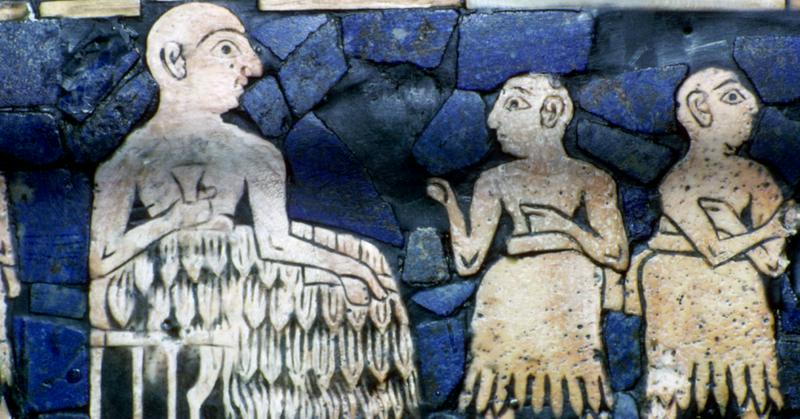The Anunnaki: Myth Of Ancient Deities That Predate History And Supposedly Created Humanity
By | August 27, 2020

If you've ever watched the History Channel's Ancient Aliens or similar TV shows, you've probably heard some wild-haired guy talk about the Anunnaki, a collection of gods that appear in the mythology of the ancient Babylonians, Sumerians, and Assyrians. These pseudo-archaeologists have investigated the tales associated with the Anunnaki and come to a startling conclusion: that they were a race of aliens that populated the Earth.

The Ancient Sumerians
Sumer was one of the first great human civilizations, thriving across a group of city-states in Mesopotamia from about 4100 B.C.E. until about 1750 B.C.E. Sumerian mythology was complex, but it described the Anunnaki ("princely offspring" in Sumerian) as heavenly beings. The statues of the Anunnaki were dressed, given food, and otherwise treated as though they were the embodiment of the deities. Ancient Sumerians even moved the statues around so they could attend various festivals and sacred events.

Theories About The Anunnaki
The ancient Sumerians described the Anunnaki as having animal-like features, wings, and extraordinary size. The deities wore horned caps, and their clothing was said to be made of a strange material called melam that surrounded them in "terrifying splendor" and caused humans who encountered it to experience a "physical tingling of the flesh." They were also described as having amazing superpowers. They dictated the actions of humans and passed judgement on wayward individuals.
While many researchers believe that the tales of the Anunnaki are nothing more than mythology that ancient people invented to explain the unknown, others have different theories about the Anunnaki. Among the most popular is that the Anunnaki were an actual race of pre-humans that came from another planet whose orbit brings it close to Earth every few thousand years.
According to the "ancient alien" theory, the Anunnaki traveled to Earth in the distant past in search of gold. They encountered a primitive race of early humans, and through genetic manipulation and DNA splicing, they created modern humans as a cheap, easy-to-train labor force to mine gold. They taught the humans math and how to write and otherwise advanced their civilization, and once they had enough gold, they returned to their own planet, leaving behind a genetically altered race of humans that still viewed their alien masters as gods.

Ancient Knowledge From The Anunnaki
Proponents of the ancient alien theory cite several passages in Sumerian texts as evidence to support the idea that the Anunnaki were a race of ancient astronauts. According to them, ancient Sumerians had knowledge of planets and celestial bodies that cannot be seen with the naked eye, as well as an understanding of the orbits of planets that they could not have learned by observation. They also point to the explosion in knowledge of math, astronomy, architecture, and law to suggest that the Sumerians had otherworldly teachers. Note that plenty of ancient civilizations knew about numbers, and no one is ascribing alien involvement to them.
Researchers have also been puzzled by some of the descriptions of vehicles in ancient Sumerian texts that appear to reference flying machines, "chariots" that made tremendous noises and emitted smoke and fire. Opponents of the ancient alien theory claim, however, that such claims are based on misinterpretations of the Sumerian language or that the ancient authors were describing natural phenomena, such as volcanic eruptions.

